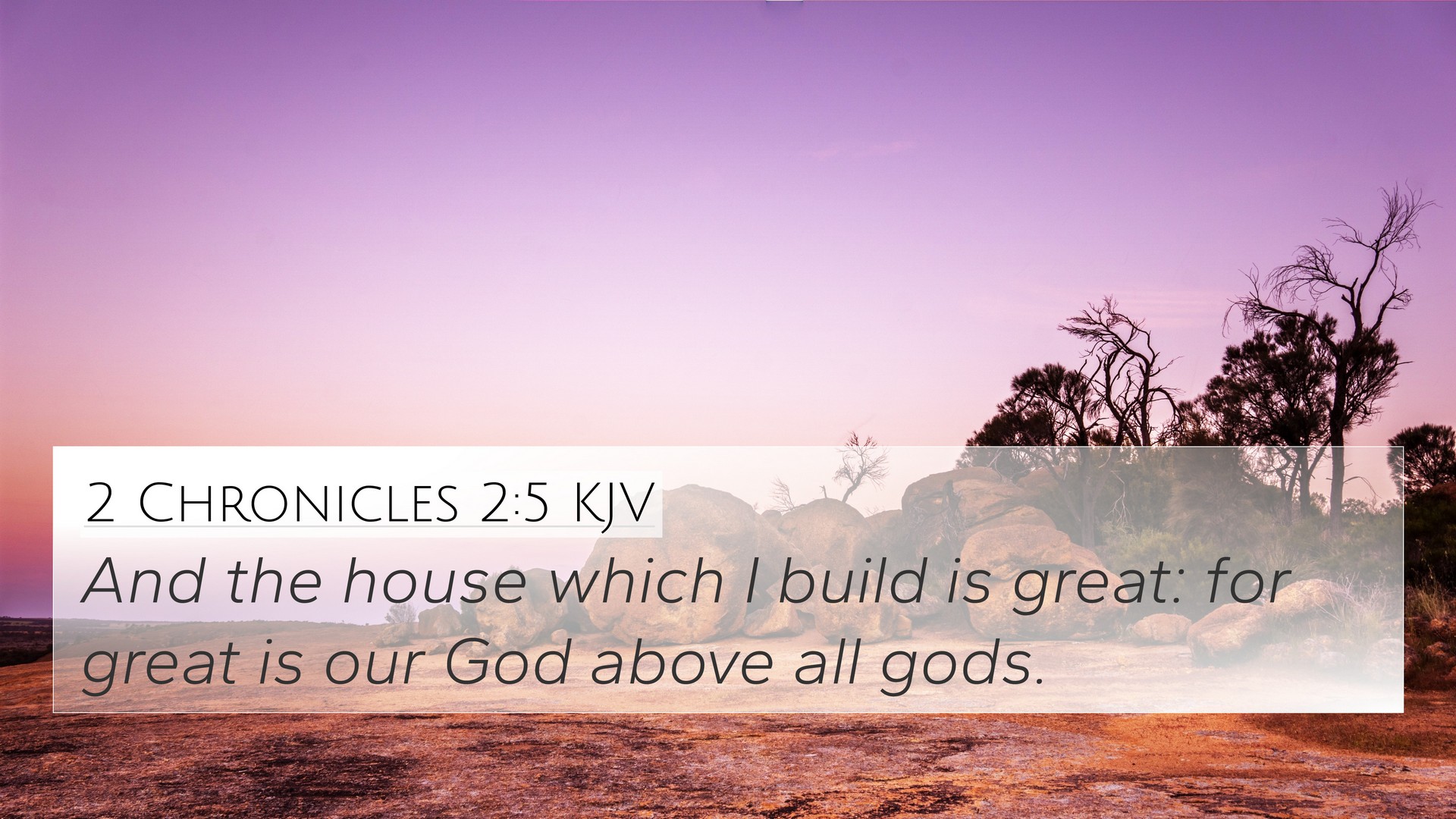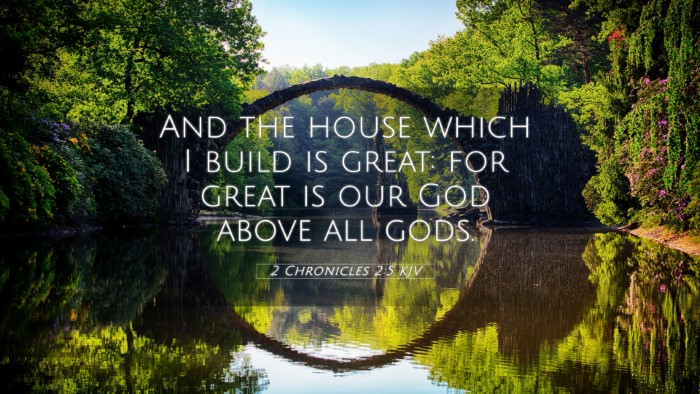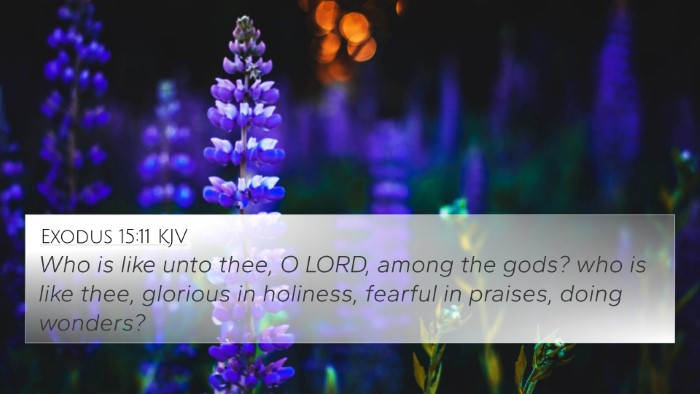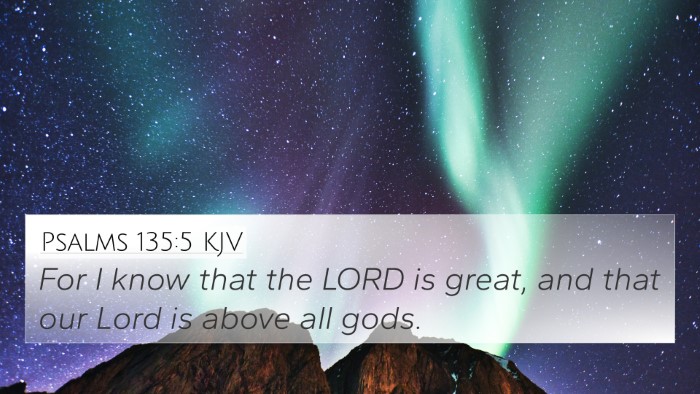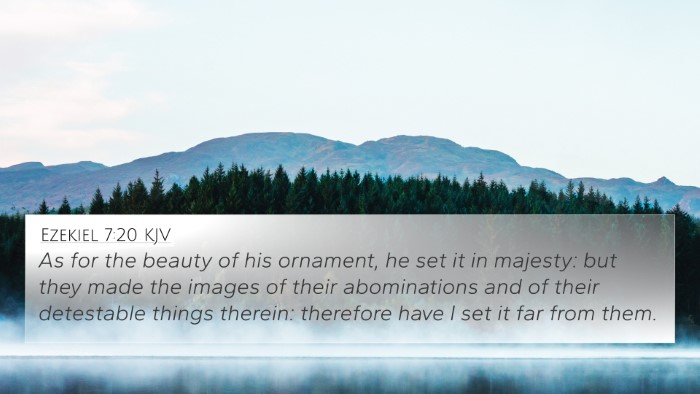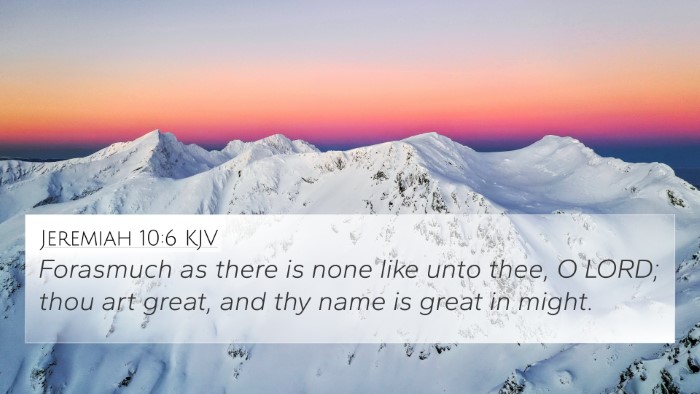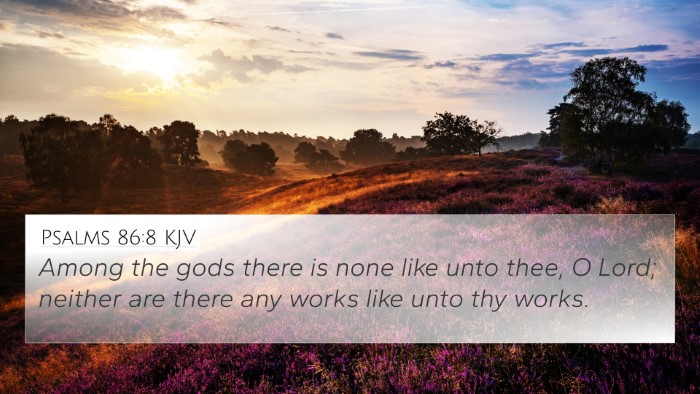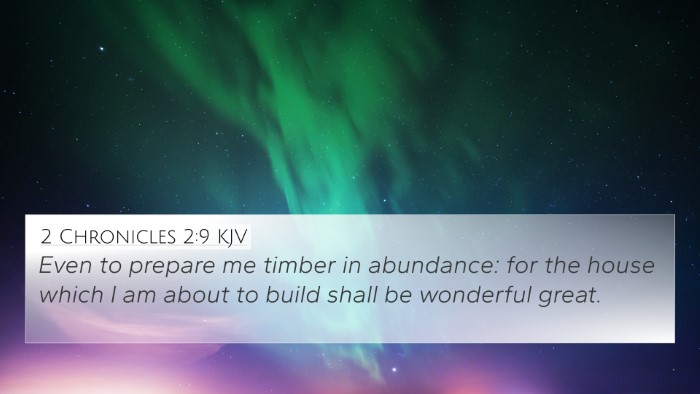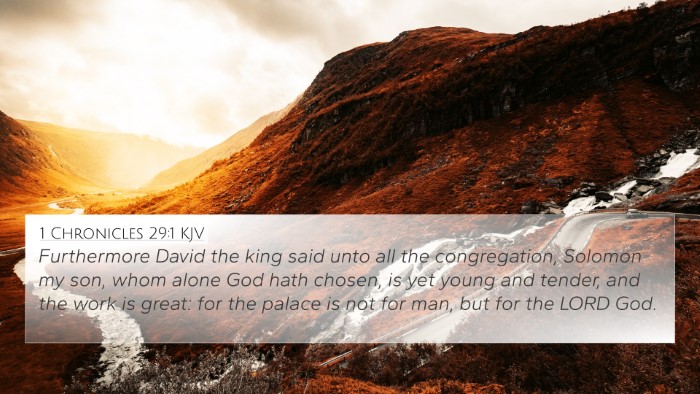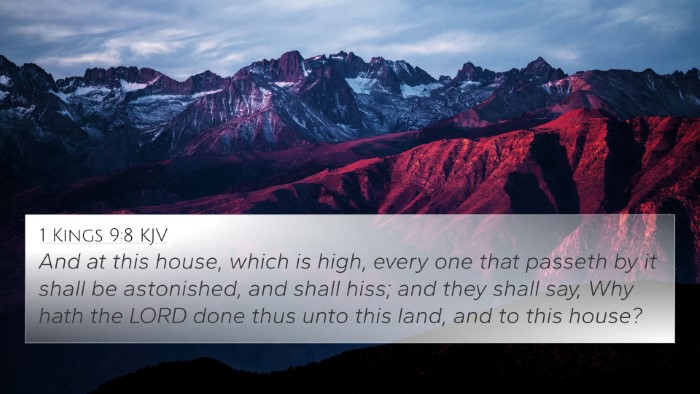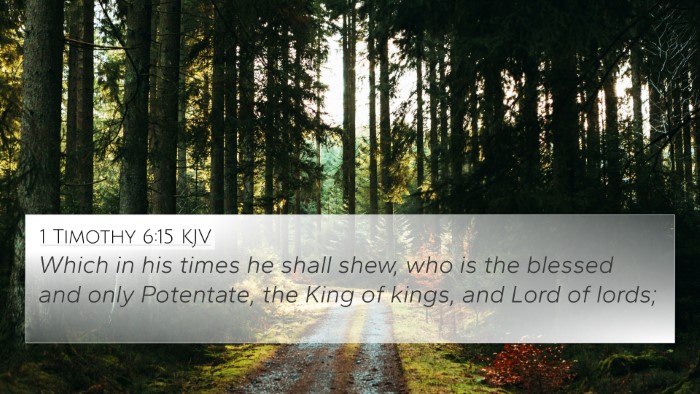Understanding 2 Chronicles 2:5
2 Chronicles 2:5 states: "And the house which I build is great: for great is our God above all gods."
This verse is significant, encapsulating the grandeur of both the temple that Solomon is to build and the greatness of God. Below, we explore the meanings and implications of this verse, drawing insights from public domain commentaries.
Summary of Key Insights
-
Divine Greatness: The phrase "great is our God" emphasizes God's supremacy over all other deities. Matthew Henry articulated that this declaration reinforces monotheism and the exalted nature of the God of Israel in contrast to the false gods of surrounding nations.
-
Solomon's Vision: Solomon's intention to build a magnificent temple signifies not only architectural ambition but a desire to honor God. Albert Barnes noted that the temple was envisioned as a dwelling place for God's presence amongst His people.
-
God's Selection: Adam Clarke remarked on the implication that God’s greatness necessitates a worthy place of worship, thus marking the temple as 'great', which reflects God’s own glory and magnificence.
Thematic Connections
This verse connects deeply with various themes in the Bible, highlighting God's supremacy. Here are some relevant cross-references that support these themes:
- Psalm 95:3 - "For the Lord is a great God, and a great King above all gods."
- 1 Kings 8:27 - "But will God indeed dwell on the earth? behold, the heaven and heaven of heavens cannot contain thee; how much less this house that I have builded?"
- Isaiah 40:18 - "To whom then will ye liken God? or what likeness will ye compare unto him?"
- 1 Chronicles 29:11 - "Thine, O Lord, is the greatness, and the power, and the glory, and the victory, and the majesty..."
- Exodus 15:11 - "Who is like unto thee, O Lord, among the gods?"
- Jeremiah 10:6 - "Forasmuch as there is none like unto thee, O Lord; thou art great, and thy name is great in might."
- Acts 7:48-49 - "Howbeit the most High dwelleth not in temples made with hands; as saith the prophet..."
Cross-Referencing Biblical Texts
This verse invites us to explore the connections between various passages in the Bible that collectively showcase the grandeur of God and the essential need for worship within a dedicated space. Utilizing Bible concordance and Bible reference resources can enhance understanding. Here’s how you can benefit from cross-reference Bible study techniques:
- Identify thematic Bible verse connections by grouping verses that illustrate God's greatness.
- Use a cross-reference guide to find relationships between verses in different books that speak to God's sovereignty.
- Implement tools for Bible cross-referencing to explore connections between Old and New Testament teachings.
- Analyze how different writers express the greatness of God through various styles and contexts.
Inter-Biblical Dialogue
The examination of 2 Chronicles 2:5 not only stands alone but creates an inter-Biblical dialogue. When revisiting other scriptures such as Psalm 86:8 ("Among the gods there is none like unto thee, O Lord; neither are there any works like unto thy works.") and Hebrews 8:1 (regarding the high priest and the heavenly sanctuary), we begin to form a mosaic of biblical understanding around God's unparalleled might.
Conclusion
Through these connections and themes highlighted in 2 Chronicles 2:5, we comprehend the significance of Solomon’s proclamation concerning the temple and its relationship with the divine. This exploration isn’t just academic; it reminds believers today of the centrality of God’s greatness in our worship and the temples of our lives.
Further Study Recommendations
For those wanting to deepen their understanding through Bible chain references and comprehensive Bible cross-reference materials, consider:
- Looking at cross-references for specific themes such as "divine presence" and "holy worship".
- Engaging in comparative studies of Davidic Psalms that echo Solomon’s sentiments.
- Participating in Bible study groups focusing on thematic connections across the scriptures.
Ultimately, 2 Chronicles 2:5 is a declaration of both human intent to honor God and a recognition of God’s unfathomable majesty, establishing a profound connection between humanity and the divine.
